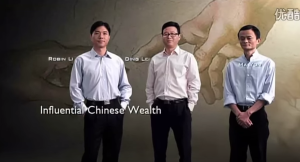by Mariana Rodrigues Meriqui
On September 10th, 2016, at the AWID Forum, held in Costa do Sauípe (Bahia,Brazil), SPW (Sexuality Policy Watch), in collaboration with CAL – Coalition of African Lesbians, CONECTAS Human Rights, DAWN – Development Alternative with Women for a New Era –, organized a session/workshop entitled ‘Emerging Powers, gender, sexuality and human rights. The main objective of this session was to deepen and share insights about the implications of global political and economic shifts, more specifically manifested in the formation of new geopolitical blocks, such as the BRICS (Brazil, Russia, India, China and South Africa) and its correlation with the politics of gender, sexuality and human rights.
The session shared the results of the latest round of analyses developed by SPW, a global research project that examined the dynamic of the so-called emergence in the four global South countries, namely Brazil, China, India and South Africa (Russia was not included because, among other reasons, it does not fit into this category). This research effort unfolded from previous initiatives: the project SexPolitics: Reports from the Frontlines (2004-2007) and the Regional Dialogue on Sexuality and (Geo) Politics in Asia, Latin America and Africa, developed by SPW (2009-2014).
The geopolitical shift underway, especially the formation of the BRICS, has, in recent years, generated expectations that new opportunities will arise for the political work on sexuality, gender and human rights to leave behind the complex and overlapping North-South tensions (or post-colonial effects) that perennially traverse these debates. The session therefore looked into if and how gender and sexuality dimensions are or not manifested in the emergence of these new geopolitical blocks, reminding that these realms are not usually addressed by analyses being developed by mainstream actors who are reflecting on the phenomenon ( the mainstream media, economists, international relations analysts, non-governmental organizations).
One first observation made was that the formation of the BRICS is a vast and complex object of analyses whose interpretation is challenging even from a conventional economic or development point of view, because it encompasses a wide range of political and policy exchanges as well a plethora of bilateral and multilateral agreements. If gender and sexuality are added to this churn the challenge is further complicated.
 A second reflection developed in the session was that if, on the one hand, gender and sexuality, are not usually viewed – by the media or academic analysts — as relevant topics in the BRICS realities agenda, suffice to pay closer attention to the photos of BRIC Summits or to glance over the advertisement materials produced by its member states to quickly realize that gender and sexuality can not exactly been circumvented when the ’emergence’ is critically examined. The gender dimension is, for example, quite blatant in the discomfort expressed by Dilma many the group photos. It is also quite flagrant in Putin’s body language in practically all BRICS Summit official images. Deep gender imprints are also grossly evident in the images deployed by an official video recently released by the Chinese government and also in an Indian video, circulated few years ago, calling for the ‘transformation of the Indian nation”, which projects a peculiar expression of stern and seductive masculinity both representing and overlapping with the country’s ‘pulsation towards development. ‘
A second reflection developed in the session was that if, on the one hand, gender and sexuality, are not usually viewed – by the media or academic analysts — as relevant topics in the BRICS realities agenda, suffice to pay closer attention to the photos of BRIC Summits or to glance over the advertisement materials produced by its member states to quickly realize that gender and sexuality can not exactly been circumvented when the ’emergence’ is critically examined. The gender dimension is, for example, quite blatant in the discomfort expressed by Dilma many the group photos. It is also quite flagrant in Putin’s body language in practically all BRICS Summit official images. Deep gender imprints are also grossly evident in the images deployed by an official video recently released by the Chinese government and also in an Indian video, circulated few years ago, calling for the ‘transformation of the Indian nation”, which projects a peculiar expression of stern and seductive masculinity both representing and overlapping with the country’s ‘pulsation towards development. ‘
Another important aspect highlighted at the AWID discussion was the creation of the BRICS New Development Bank (NDB). The bank whose model is based on the frames of national development banks, such as BNDS in Brazil, has been announced as an alternative to existing multilateral financial organizations. However, even if its Code of Conduct includes references to valuing diversity and the creation of an enabling environment for gender equality, in fact and in practice, the policy guidelines recently published by NDB are not exactly people and human rights centered. Quite clearly the priority of the NDB is economic growth, tout court. The loans already approved by the bank are all in the area of infrastructure: new energy sources, solar panels and data transmission platforms. The mentioning of equity in the NDB Code of Conduct does not necessarily means that this principle will be effectively translated into practice. In light of that, the involvement and active participation of civil society in discussions around the NDB is crucial in order to ensure that some form of social control over policies that will be implemented by the institution.
 After these preliminary discussions, an exercise was proposed in which the participants were invited to draw a visual representation of the new geopolitical block. The visual representations resulting from exercise were very diverse but some convergences were noted. For example, various groups considered that it is important to understand that this new reconfiguration is not yet fully established, but rather it is still a work in process that may or not lead towards a novel geopolitical order. The drawings also suggested that the meanings and effects of this new block must be examined beyond the boundaries of the five countries directly involved. For example, a question was raised in regard to how recent political changes in Latin America — which imply a new conservative wave and the deepening of neoliberal internal and external policies — will affect the BRICS dynamics. Another aspect underlined was the expanding presence of Chinese capitals – or more recently Gulf companies in the construction of mega-projects in Latin America and Africa. These trends were depicted by some participants as the “monstrous shadow” of the BRICS, whose contours are better delineated when the current re-configuration is looked through the lenses of social and environmental justice.
After these preliminary discussions, an exercise was proposed in which the participants were invited to draw a visual representation of the new geopolitical block. The visual representations resulting from exercise were very diverse but some convergences were noted. For example, various groups considered that it is important to understand that this new reconfiguration is not yet fully established, but rather it is still a work in process that may or not lead towards a novel geopolitical order. The drawings also suggested that the meanings and effects of this new block must be examined beyond the boundaries of the five countries directly involved. For example, a question was raised in regard to how recent political changes in Latin America — which imply a new conservative wave and the deepening of neoliberal internal and external policies — will affect the BRICS dynamics. Another aspect underlined was the expanding presence of Chinese capitals – or more recently Gulf companies in the construction of mega-projects in Latin America and Africa. These trends were depicted by some participants as the “monstrous shadow” of the BRICS, whose contours are better delineated when the current re-configuration is looked through the lenses of social and environmental justice.
This perception led to the conclusion that we can not dodge the question of whether the BRICs are or not merely reflecting new cycle of imperialism, especially in the case of African countries. This is why the gathering of knowledge and the creation of a platform of critical observation of these new formations is vital, if nothing else to map spaces and opportunities for resisting its potential negative impacts in terms of re-trenched expressions of nationalism and authoritarian sovereignty, the role of Southern-based transnational enterprises, the continuity of neoliberal economic policies and, most principally, the debilitation of social policies and erosion of human rights in relation to gender and sexuality. Such effort will require critically examining the effects of the BRICS in terms of labor rights, access to land and water and other environmental domains, but also in relation to gender equality and sexual and reproductive health and rights.
The AWID workshop reflections also indicate that we must think of BRICS not only as a formation of national states in the global South but as a new assemblage that imbricates, in complex ways, with states and capitalist forces from both South and North and whose more immediately potential effect is the deepening of inequalities. It also implies understanding the BRICS in relation to other global trend and powers. For example, while China, on the one hand, occupies a central place in the BRICS formation, on the other, it is just a cog — albeit a very important one — in the maze of global production and consumption chains. China does not only intensively consume natural resources from other Southern countries. What is produced by Chinese industries is consumed everywhere (suffice to check where your cell phones are manufactured). We must also recall that BRICS member countries comprises a substantial portion of the world population and are themselves traversed by internal inequalities that intersect with gender, race/ethnicity and sexuality-related inequities.
The AWID session also called attention to internal dynamics in the BRICS countries. Raising questions such as: what does it mean for South Africa to be part of the BRICS given its complex post-apartheid political context and when the country projects itself as an emerging power in Africa? What are the implications for the South African BRICS agenda its persistent domestic economic inequality or the high incidence of rape and HIV/AIDS? Or else, what does the BRICS mean now ( or perhaps better said, what does China mean now), for Brazil after the impeachment of Dilma Rousseff? The question must be raised not just in relation to economics but also in what concerns the BRICS and international agenda in regard to human rights, gender and sexuality. This is so because these political and policy domains have been systematically attacked by the forces that now rule the country that, in fact, have much gained strength and political power in recent years in the battles they have unleashed against abortion and sexuality-related matters, such as LGBT rights and sex education.
 Furthermore, it should be noted that the recent illegitimate shift of political leadership in Brazil does not seem to caused major concerns for China. Right after the Rousseff impeachment, the Chinese government published a full-page ad in Folha de São Paulo in which it made explicit that the relationship between the two countries has never been a relation “between governments” but rather a relation based on “structural and strategic elements of long term cooperation”. This declaration entirely leaves behind the imagination of shared political values between these two BRICS states. It also inspire us to ask what does the Chinese government mean by this terminology of ‘structural and strategic elements of long-term cooperation’? Is this a misnomer for capital investment and accumulation? Finally, in the case of India, the sustained economic emergence of the country i must be situated in relation to the political and symbolic re-activation of charismatic masculinities that imbricate ideologies of male strength and national sovereignty, as presently embodied in the figure of the Prime Minister.
Furthermore, it should be noted that the recent illegitimate shift of political leadership in Brazil does not seem to caused major concerns for China. Right after the Rousseff impeachment, the Chinese government published a full-page ad in Folha de São Paulo in which it made explicit that the relationship between the two countries has never been a relation “between governments” but rather a relation based on “structural and strategic elements of long term cooperation”. This declaration entirely leaves behind the imagination of shared political values between these two BRICS states. It also inspire us to ask what does the Chinese government mean by this terminology of ‘structural and strategic elements of long-term cooperation’? Is this a misnomer for capital investment and accumulation? Finally, in the case of India, the sustained economic emergence of the country i must be situated in relation to the political and symbolic re-activation of charismatic masculinities that imbricate ideologies of male strength and national sovereignty, as presently embodied in the figure of the Prime Minister.
Among the many learnings of the session, the most significant is perhaps the urgency for us to begin analysing the BRICS not merely as a new Southern block but as a complex assemblage that combines capitalism, sovereignty and nationalist discourses, strong traces of militarism and various forms of the political return of the religious. Most importantly, whatever angle this assemblage is examined gender sexual politics cannot be circumvented.
Check SPW reports and video on Emerging Powers, Sexuality and Human Rights
